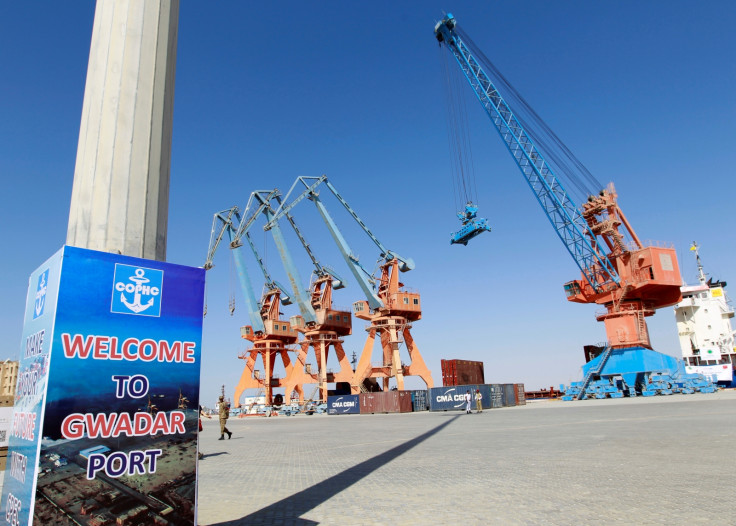Pakistan builds state-of-the-art warships to defend new trade routes with China
The trade routes are seen as a Chinese attempt to challenge US economic dominance.

Pakistan has started building a missile warship aimed at protecting its transformative trade route being constructed with China.
The China-Pakistan Economic Corridor (CPEC) is a $51.5bn (£41.47bn) project between the two Asian countries, which includes a multitude of road, rail and pipeline projects.
The expansive scheme is part of China's ambition to be an even more dominant player in the world's economic arena, challenging the hegemony of the US.
With trading routes reaching Pakistan's port cities of Gwadar and Karachi, the country aims to modernise its navy to protect any exports, especially oil, from potential threats in the Arabian Sea.
The new warship will have the "latest weapons and sensors," according to Pakistani military's Inter-Services Public Relations branch.
DefenseNews reported the Azmat-style ship, which has been designed by China, carries eight anti-ship missiles and six larger missiles with a range of 280km and a 300-kg warhead.
The vessel could be used to escort oil tankers between the strategically important Strait of Hormuz, which lies between Saudi Arabia, Oman and Iran, and sees 20% of the world's oil pass through the waterway.
China's partnership with Pakistan will allow it to acquire oil from the Middle East without tankers having to pass through the Malacca Strait, which crosses into the troublesome South China Sea.
The CPEC is also expected to generate great economic returns for Pakistan, with thousands of jobs to be created.
However, the scheme is not without its critics. Pakistan's government has on Tuesday (3 January) allowed for 40% of the Karachi-based Pakistan Stock Exchange to be sold to a Chinese consortium for $85m.
In local media, China's aspirations have been likened to the Marshall Plan of the US, deployed after the Second World War.
"The CPEC functions on a number of different levels," a columnist for the Hindustan Times wrote.
"Symbolically it would be potent evidence of what economic benefits a country that allies with Beijing can expect. A rough comparison would be the Marshall Fund, the programme by which the United States rebuilt war-torn Europe, reworked the very economic structure of that continent and showcased its arrival as a superpower.
"Chinese officials themselves speak of how the CPEC will not be just about trade and transit, it will be about bringing stability to Pakistan. Taming, as it were, a rogue state with poured concrete. And, if successful, Beijing would be able to argue it succeeded where Washington had failed."
© Copyright IBTimes 2025. All rights reserved.





















